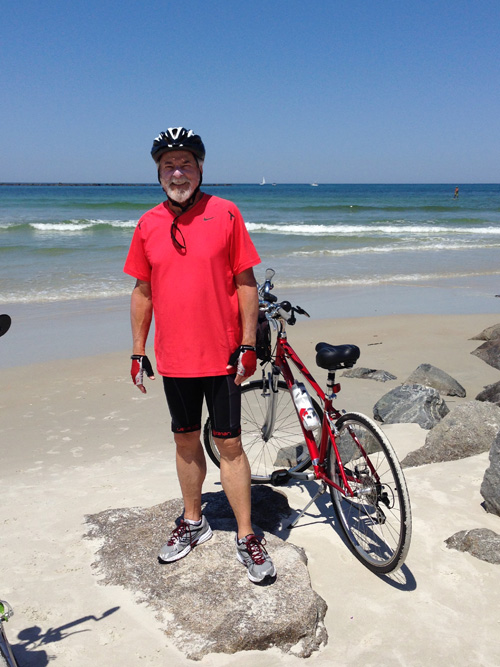Treated 2008 · Posted 2014
"I believe the issue which separates my situation from many others is that I came to proton therapy AFTER failed surgery—five years after surgery. Men in my situation are faced with reliving the trauma of prostate cancer all over again. My goal is to tell them that proton therapy can drive a stake right through the heart of that cancer and you can get on with your life."
In 2003, at age 60, I was diagnosed with prostate cancer. My PSA score was 9.0 and my Gleason Score was 7 (4+3). After some research (I didn't learn about proton until 2008) and advice from my doctor, I opted for prostate removal. The surgery was performed and seemed to be successful. My recovery was complete and I had minimal side effects.
For the next five years, I had regular PSA tests which all showed a non-detectable reading. However, in February of 2008, five years after surgery, my PSA rose from 0.0 to 0.60. By March, it reached 0.90 and was clearly moving quickly upwards.
The diagnosis was recurrence of prostate cancer! I was frantic―particularly since I was regularly reassured that "surgery was the final cure." I had never expected to face prostate cancer again, but I was wrong.
After researching again, I decided on proton therapy in 2008. I have had no side effects and my first post-treatment PSA test showed a significant drop.
I preach PSA testing and proton therapy to anyone who will listen, and I would be pleased to share my story with anyone who may benefit from my experience.
July, 2014
I am still on a mission in life to "pay it forward." I give my little "proton talk" every chance I get. It is the best way that I can repay the BOB and all the others who have helped me.
I believe the issue which separates my situation from many others is that I came to proton therapy AFTER failed surgery―five years after surgery. Men in my situation are faced with reliving the trauma of prostate cancer all over again. My goal is to tell them that proton therapy can drive a stake right through the heart of that cancer and you can get on with you life. My second goal is to tell others that there is a 30 percent chance of recurrence after surgery―something the surgeons never tell you. Most of my conversations are with men who have had recurrences and don't know what to do next. And most feel they have been abandoned by their original surgeons.
I am now 71 years old. I weigh about the same as I did when I was 25; play two hours of tennis three days a week (I have participated in the Florida Senior Tennis Games for the past three years—men's doubles); and golf one day a week. I also ride my bicycle often and enjoy life with my wife, Bonnie.
Heck, I am in better shape and condition now than when I was a "young man!" Thank you, proton!
Here is a recent photo of Peter with his bicycle on New Smyrna Beach in Florida.

